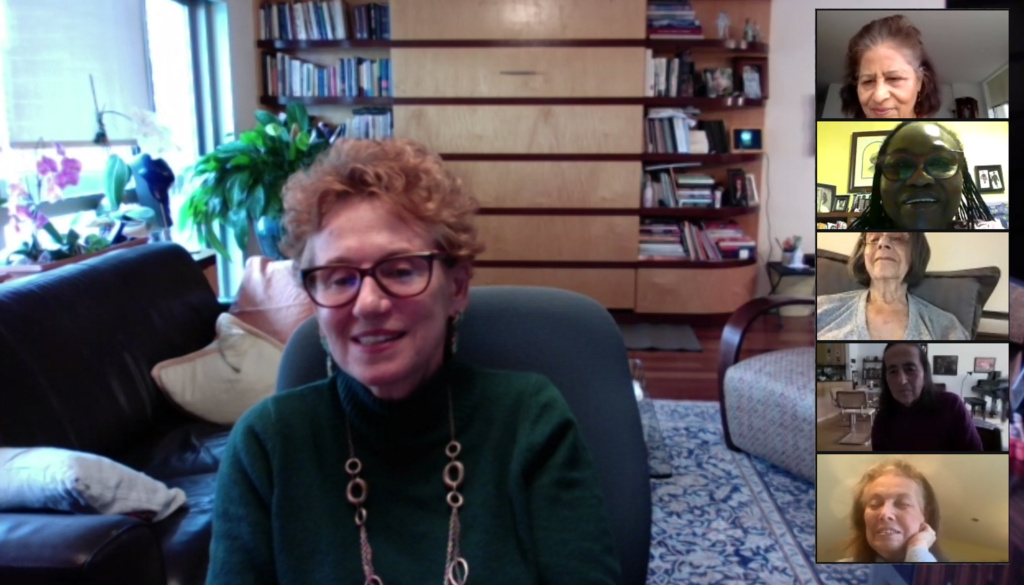
DOROT, a non–sectarian, culturally Jewish agency open to all seniors, caregivers, and volunteers located on New York City’s Upper West Side, usually offers 20-25 programs onsite each week to between 250-300 older adults. The offerings range from movement to poetry to mixed media collage.
When the COVID-19 crisis hit, DOROT was determined to continue serving their community members who have come to appreciate the high-quality arts programming and social interaction that these classes provide. In just one month, DOROT was able to move all of their onsite programs to what they are calling DOROT Onsite @Home via Zoom video conferencing.
Onsite @Home has become a “naturally-occurring pilot,” where tech coaches support participants and Onsite @Home staff assist teaching artists during live programs. The staff also open Zoom meetings early for folks to chat and connect and begin every session with announcements and contact information.
“We’re flying the plane as we build it,” said Wendy Handler, Director of Onsite Programs. “We had to first train our teaching artists and staff facilitators how to teach through the technology, then teach our older adults how to use it.”
Lorraine Voytek, Director of DOROT’s Connect Through Tech, said the coaches help clients get over that “hump of starting.” “It’s not the ongoing use of tech that’s a problem for older adults, it’s that first step,” said Lorraine. Wendy shared that class participants have really taken to the technology and are “chatting” outside of class. “They are hungry to see each other, and they get a kick out of this connection,” she added.
Keeping an Open Mind About Online Programming Adaptation
Wendy says one silver lining to the current situation is how open their instructors are to facilitating programs online. Teaching Artist Robin Bady adapted her popular storytelling program, “Wisdom Tales,” and discovered that her participants really took ownership of the class. “It was not a hard transfer because the people all knew each other and the trust level was high,” she said.
Robin has prior experience leading story circles online through Selfhelp’s Virtual Senior Center, and recognizes that teachers and students have to get used to the online format: “You have to be aware to not jump in when there is a delay. As ever with storytelling, listening is what it’s all about.”
“We Are Able to Touch More People This Way”
DOROT’s online arts education programming has provided older adults an escape from the stresses and strain of life during the COVID crisis. One participant said that after “sitting in a stew of anxiety and darkness in my apartment,” and worrying about her own health and that of her family, taking a class, “helped to put the light back into my heart.”
DOROT’s has seen an increase in online student engagement. “Some older adults who never wanted to cross the park before are now joining the programs,” said Wendy. “It’s lovely because we are able to touch more people this way,” Wendy added. She sees the usefulness of online programs post- COVID-19 quarantine. “If they don’t like [an online class], they won’t have to physically walk out the door in front of everyone. So they’re more willing to take a chance.”
DOROT was part of the 2017-2018 Catalyzing Creativity Initiative, funded by The Fan Fox and Leslie R. Samuels Foundation’s Healthy Aging Program with additional support from the New York State Council on the Arts and Aroha Philanthropies.
#ConnectThruCreativityNow Campaign
Like many arts service organizations, Lifetime Arts is recalibrating its offerings to best suit the circumstances surrounding COVID-19.
#ConnectThruCreativityNow is just one of the things that we are doing to advocate for continued artistic and social engagement for older adults while under quarantine.
Share Your Story
Tell us how you are reaching out to older adults during this time. Thank you!

